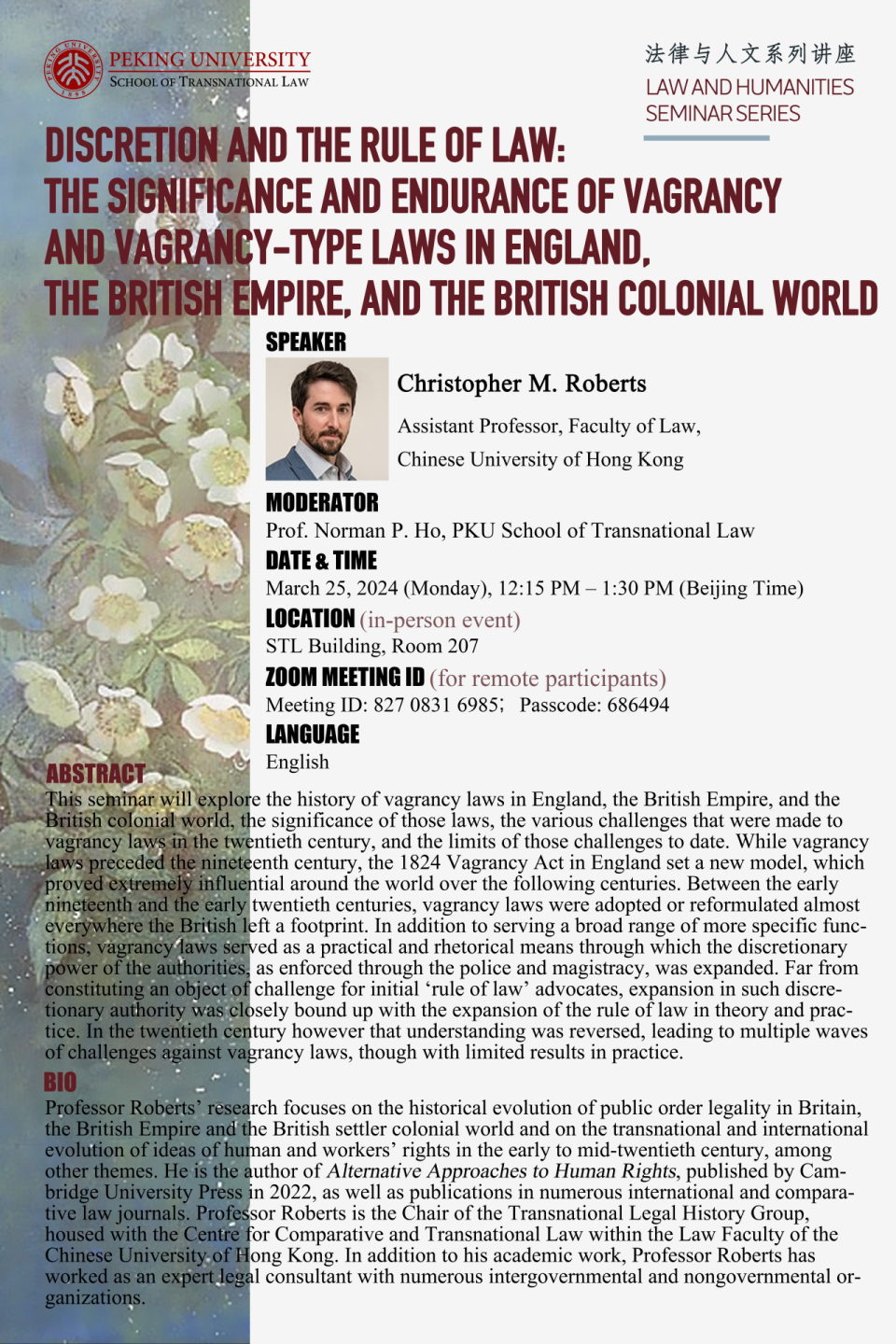
Speaker: Christopher Roberts, Assistant Professor at Chinese University of Hong Kong Faculty of Law
Time: 12:15-13:30 p.m., March 25, 2024, GMT+8
Venue: Room 207, STL, PKU
Abstract:
This seminar will explore the history of vagrancy laws in England, the British Empire, and the British colonial world, the significance of those laws, the various challenges that were made to vagrancy laws in the twentieth century, and the limits of those challenges to date. While vagrancy laws preceded the nineteenth century, the 1824 Vagrancy Act in England set a new model, which proved extremely influential around the world over the following centuries. Between the early nineteenth and the early twentieth centuries, vagrancy laws were adopted or reformulated almost everywhere the British left a footprint. In addition to serving a broad range of more specific functions, vagrancy laws served as a practical and rhetorical means through which the discretionary power of the authorities, as enforced through the police and magistracy, was expanded. Far from constituting an object of challenge for initial ‘rule of law’ advocates, expansion in such discretionary authority was closely bound up with the expansion of the rule of law in theory and practice. In the twentieth century however that understanding was reversed, leading to multiple waves of challenges against vagrancy laws, though with limited results in practice.
Source: School of Transnational Law, PKU
